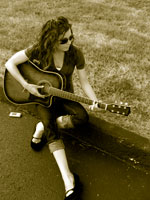The Disaster of the Unedited Life
Jean Hoefling
One hates his enemies only when he fails to realize that they are not enemies, but cruel friends. – St. Nikolai Velimirovich (1881-1956)
The noted novelist who taught the fiction writers workshop I attended said this a lot: “Assume your reader is smarter than you are.” As a reviewer of self-published works for an online indie book review site, I see a lot of writing that makes me wish every author kept this in mind. Too often I have to sit down with a heavy heart to write a far less than glowing review for a book that’s somewhere on the continuum between lackluster and disastrous, sometimes (though not always) because it wasn’t properly worked over by a ruthless professional editor who’s trained to see what that writer couldn’t. Did the author of the repetitive, structurally weak self-help book riddled with disjointed and patronizing narrative, confusing syntax, careless typos, and myriad formatting issues think his readers would be that oblivious, that willing to settle for mediocrity, because after all, this guy wrote it, so it must be great? It seems obvious, but apparently isn’t to some, that before the glorious final unveiling of one’s chef d’oeuvre, serious dues must be paid.
Then I wonder: What if in my personal life I’m as disjointed and uninspiring as that book? What would happen if I sat down with a good friend and asked her to hit me with my greatest character flaw, the one that might break me in the end if I don’t get a clue? Alas, our brains are hardwired to pretty much see perfection in ourselves, which is part of why writers often can’t detect the weak story arc that’s going to doom their novel if they don’t take a hard look at things, much less spot their own typos.
They say the devil’s in the details, but so is God. A writer determined to be stellar will endure even a brutal editor if he senses the guy is on the money. The lure of a glowing end product makes temporarily wounded pride worth the wait. As to life, the Serbian bishop Nikolai Velimirovich was so receptive to refinements of character that he called his torturers in the Dachau death camp “cruel friends” because he claimed their evil ministrations enlarged his capacity to love others. With that kind of humility, imagine the novel he could have written.


